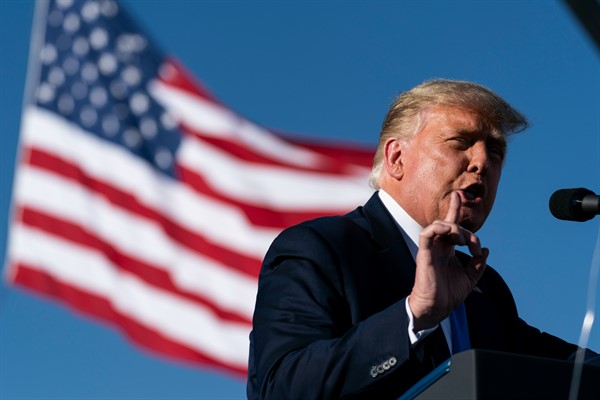When Viktor Orban became prime minister of Hungary in 2010 following a landslide election victory by his Fidesz party, most observers considered Hungary’s democracy to be “consolidated” and secure since the fall of communism. In the years that followed, however, Orban used his position to slowly chip away at Hungary’s democratic institutions.
First to fall was the judiciary. In 2011, the government pushed through a constitutional change that allowed parliament to directly select justices of the Constitutional Court, and lowered the retirement age for all judges from 70 to 62. Then, the government made changes to the electoral system that all but guaranteed Fidesz would maintain its parliamentary majority—even if it fell far short of winning a majority of votes. Orban also targeted the media by merging all government-funded television and radio outlets into a new Fidesz-run media organization and founding a new government body to monitor it, run by Fidesz supporters. By 2017, the ruling party’s allies or the government had ownership of 90 percent of all media in Hungary.
As a result of these and other measures, Hungary can fairly be called one of the world’s newest dictatorships—even if it still has some trappings of democracy, like elections—and Orban, or the “Viktator” as his domestic critics call him, is firmly in control. The process through which Hungarian democracy fell apart is consistent with democratic breakdowns elsewhere in recent years, such as Nicaragua and Burundi. Incumbent takeovers, where democratically elected leaders slowly erode their countries’ institutions to consolidate power, have now displaced coups as the most common way in which democracies fall apart.

